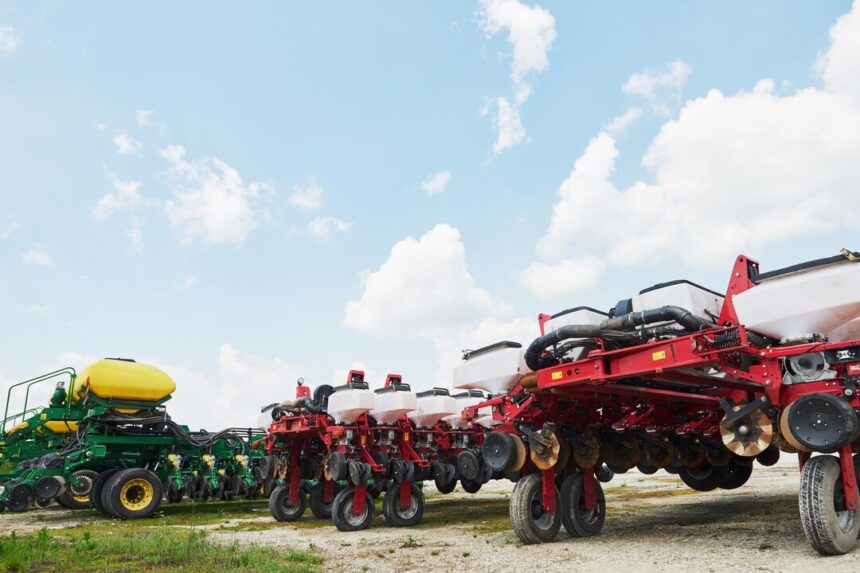Hydraulic equipment has become a cornerstone of modern farming, offering power, precision, and efficiency to agricultural tasks. From tractors to harvesters, hydraulic systems allow farmers to handle heavy workloads with ease, reducing manual labor and improving productivity. Here’s an essential guide to understanding and using hydraulic equipment for efficient farming.
What Is Hydraulic Equipment?
Hydraulic systems use fluid under pressure to generate mechanical power. In farming, this technology is widely applied in machinery to lift, push, pull, or rotate components, enabling the performance of tasks such as plowing, planting, irrigation, and harvesting. Common hydraulic equipment includes tractors, balers, loaders, sprayers, and combine harvesters.
Key Benefits of Hydraulic Equipment in Farming
- Increased Efficiency: Hydraulics enable faster and more precise execution of tasks, saving time during peak farming seasons.
- Enhanced Power: Hydraulic systems can lift and move heavy loads effortlessly, making them ideal for plowing or hauling.
- Versatility: Many hydraulic machines support interchangeable attachments, allowing farmers to handle multiple tasks with a single piece of equipment.
- Reduced Manual Labor: With hydraulic power, tasks that previously required significant physical effort can now be performed with minimal strain.
Common Hydraulic Farming Tools and Their Uses
- Tractors: Equipped with hydraulic systems to power implements like plows, seeders, and harrows.
- Harvesters: Use hydraulics for lifting, cutting, and collecting crops efficiently.
- Sprayers: Hydraulic sprayers ensure even application of fertilizers and pesticides.
- Front-End Loaders: Designed for lifting and moving materials like soil, manure, and feed.
- Hydraulic Post Drivers: Simplify the process of driving posts into the ground for fencing.
Tips for Efficient Use of Hydraulic Equipment
- Choose the Right Equipment for Your Needs
Assess your farming operations and select machinery that matches your requirements. For example, if you manage a large-scale farm, opt for high-capacity tractors or harvesters with robust hydraulic systems. - Understand Hydraulic Controls
Take time to familiarize yourself with the controls of your hydraulic equipment. Knowing how to adjust pressure settings and operate attachments ensures better performance and prevents accidents. - Conduct Routine Maintenance
Proper maintenance extends the lifespan of hydraulic equipment and prevents costly breakdowns. Key maintenance steps include:- Regularly checking hydraulic fluid levels and quality.
- Inspecting hoses, seals, and connections for leaks or wear.
- Replacing filters as recommended by the manufacturer.
- Ensuring proper lubrication of moving parts.
- Monitor for Hydraulic Issues
Watch out for common hydraulic problems such as:- Leaking Fluid: Can indicate damaged seals or hoses.
- Slow Operation: May result from low fluid levels or air in the system.
- Overheating: Often caused by clogged filters or overuse.
Addressing these issues promptly can prevent further damage.
- Train Operators
Ensure that all operators are properly trained to use hydraulic equipment. This minimizes the risk of accidents and enhances productivity.
Safety Considerations
Using hydraulic equipment comes with inherent risks, so safety should always be a priority. Key safety practices include:
- Never working under raised hydraulic implements without proper support.
- Keeping hands and clothing away from moving parts.
- Using equipment only within its rated capacity to prevent overloading.
- Wearing appropriate protective gear, including gloves and steel-toed boots.
Future Trends in Hydraulic Farming Equipment
As technology advances, hydraulic systems are becoming more efficient and sustainable. Innovations such as energy-saving hydraulic pumps, smart sensors, and automated controls are enhancing performance while reducing environmental impact. South African farmers can look forward to integrating these advancements to further optimize their farming operations.
Hydraulic equipment is a game-changer for efficient farming. By understanding its functions, maintaining systems properly, and adhering to safety protocols, farmers can unlock the full potential of this powerful technology. Embracing hydraulic equipment not only improves productivity but also paves the way for sustainable and modern agricultural practices.
Join 'Farmers Mag' WhatsApp Channel
Get the latest Farming news and tips delivered straight to your WhatsApp
CLICK HERE TO JOIN






